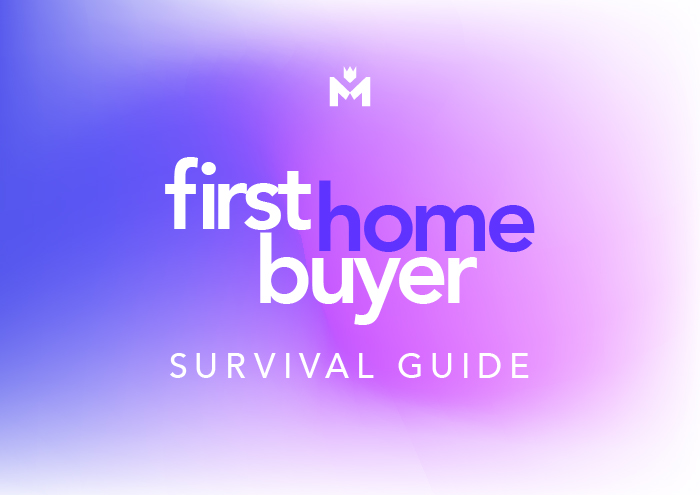Are you a first home buyer, or generally want to buy a home, and not even sure where to begin? It’s easy for people to say “just do some research and be organised”, but most of us in the younger generation don’t even know what to look for, let alone what to start with. The banks say “here’s some first home buyer tips” but fail to mention an LVR, and how this impacts you.
This will be a long read, packed full of information. Buckle up!
It’s on us, the businesses who specialise in this kinda stuff, to break down the barriers and help everyone get to where they want to be. So, read on to learn the latest jargon, what you need for a home loan, and what to do!
Starting simple, let’s go with the jargon. Here is an overview that we see as commonly used and stated throughout articles and in our day to day lives.
What Are The Basics In Home Buying Jargon?
- Mortgage: A bank lends an individual or a couple money with an interest cost, in exchange for taking the security of the property.
- Interest: What the bank will charge you on the money that you have borrowed, and is expressed as a percentage amount.
- Security: This is a tradable financial asset. It’s basically anything that is worth money and can be leveraged or traded.
- Term: The duration of your loan, or the length of time that it will take to pay off your mortgage/home loan.
- Loan to Value Ratio – LVR: This is the amount of your loan compared to the value of your property.
- Deposit: The amount you need to have upfront to secure your home – usually a 20% payment on the property you want to buy.
- Low deposit lending: A special type of deposit that requires only 10% of the total amount on the property you want to buy. We outline the ins and outs here on our podcast.
- Principal: This is the total amount you borrow. The amount you repay is usually made up of principal and interest.
- Conditional approval: This means you can put forth an offer based on conditions you specify before the sales goes through, such as finance approval or getting a building inspection. You will need to put down an agreed timeframe, e.g. 10 working days.
- Unconditional approval: This is legally binding, and means you have to buy the property. Make sure you do your due diligence before buying a property unconditional. Bear in mind: auctions are unconditional!
- Interest rate: This is the fee you are charged for borrowing money and is based off the loan amount. This is the 1.99%p.a. rate advertised you see around!
- Fixed-rate home loans: A fixed rate home loan doesn’t change for the duration of the period you have fixed for (e.g. six-months).
- Variable-rate: This is also known as a floating interest rate, and can go up or down depending on the market.
- Rateable Value (RV): The value a council will use to work out rates, also known as the capital value. It’s the market value of your property surveyed by a company. The bank usually approves up to the RV.
- Land Information Memorandum (LIM) report: This report houses all of the relevant information your council knows about a property or section, and contains building permits, resource consents, issues with the property, rates, heritage building or trees, and any utilities or roads that may impact the site.
- Code of Compliance Certificate: This is a certificate found in the LIM that says that the building complies with the Building Act. It’s hard to get approval on a house without this.
- Settlement: And this is the day you get your keys, and all the money goes through! Say hello to your loan.
Now we know some of the basic jargon that’s used… Let’s see who you need to help you buy a home.
Who You Need To Help You Buy A Home
- Property Lawyer
They will check over the LIM, title, building report and build contract (if needed) and manage the documentation. They can provide you with unbiased legal advice and conveyancing. This usually costs, so check the fees.
- Lender or Financial Adviser
You can go with a bank or chat to a financial adviser to help you figure out the best approach and lender for your home loan. They will help you out to see what budget you’re working with, what you can borrow, and your financial situation. Which is better between bank vs. adviser?
- Registered Property Valuer
Your lender or bank will often require an RV (registered valuation). If you have a good financial adviser, they can help you with this process. If not, you might have to do it yourself! A valuation will cost as well, so check you’re into the property you want to get one of these for!
- A Surveyor Or Building Inspector
A building report is really for your piece of mind, and to sometimes make sure the lender is a happy camper. It will help you figure out any existing or potential issues with the property you’re engaging with. Your legal team and financial adviser will review this and help you figure out if there’s anything you need to look into. This will also come at a cost.
The Home Buying Process
The process is pretty hefty, so here is a really topline bullet point of generally what happens.
- Looking around on property listing websites and see what’s out there. Even start to go to a few open homes, check out some auctions, and chat to some friends. You can even see what’s off-the-plan, more info here.
- Check out your KiwiSaver and savings. How much have you got at the moment and what do you think you can do.
- It’s time, you have done the shopping around and you think it’s time to make your move. Reach out to a financial adviser or a lender, and they will get back to you with a series of things they will need from you. These things are usually your ID, proof of income, your proof of deposit, and the last few months of your bank account.
- You will either receive a list of actions needed for pre-approval (e.g. pay down personal debts) or you will receive pre-approval, with a loan amount that you are approved up to borrowing!
- Now it’s time to look for a home within the budget and make an offer. You will check out the location, the property type, and the price.
- You will then make an offer using the three main ways we buy a house in NZ: buying at auction, buying by negotiation, buying by tender. To read more ways of buying a home, this is where we outline exactly what and how.
- Check over the details, get the RV done, the building inspection, double check the LIM, and go through the final documents with your lawyer, financial adviser, or bank.
- Move in on settlement day! Most of this work will be done by the financial adviser, bank, or lawyer, which takes the pressure off you.
- It’s time to begin the home loan – check out our blog here we’re we chat through the basic ins and outs of mortgages.
Hidden Costs And Things They Don’t Tell You About Home Buying
Buying costs: one off
- Lawyer costs
- LIM Reports & files
- Building inspection
- Rateable value
- Moving costs
- Initial set ups and connections services
Owning cost: ongoing
- Home loan repayments
- Council rates
- House and contents insurance
- Utilities
- Maintenance and repairs
- Body corporate fees (if buying apartment)
If you’re wanting to read the longer list, give it a read here.
Hopefully this gives you a better understanding of what’s what, even if it’s a topline. Want to buy your dream home right off the bat? Start here.
Why not get in touch with one of us to see how you’re going?




